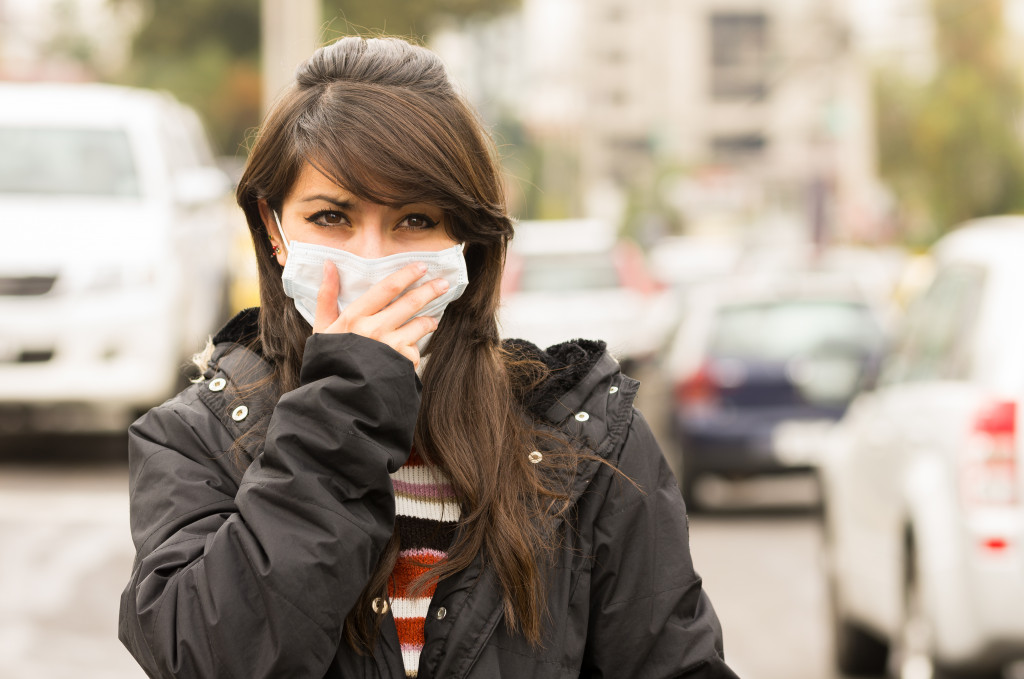Despite mask mandates being placed across multiple states and health organizations, such as the Centers for Disease Control and Prevention (CDC), promoting the movement as a life-saving gesture, many people still choose not to wear masks. Currently, 26 state governments require their citizens to wear face coverings when in public to curb the spread of the coronavirus.
That means 24 states don’t have mask mandates in place, including ones that recently lifted the order. These include Mississipi, Montana, North Dakota, Texas, Iowa, Wyoming, Wisconsin, Kansas, and Utah. State mandates are different for each state government—but they generally require people to wear masks in indoor public spaces, transportation, and outdoors where maintaining a 6-feet distance away from others isn’t possible.
Even if it’s been a year since the onset of the pandemic, there are still individuals refusing to wear masks despite statewide mask mandates, with each one having a different reason. However, the most common ones include:
Mask Shortage in Healthcare Facilities
Several individuals argue that there’s a limited supply of protective masks, so they should be reserved for healthcare facilities and their workers. Their reasoning only applies to surgical, FFP2, and FFP3 masks.
It Gives a “False Sense of Security” Upon the Wearer
Many argue that masks give the wearer a false sense of security since it’s, after all, made to protect them from people standing nearby, but it doesn’t necessarily ‘protect’ the wearer. Additionally, many don’t know how to wear protective masks correctly and properly handle them while in use—leading to many just outright refusing to wear them.
Psychological Effects
Due to some protective masks being thick, it may be challenging to communicate with others. Many argue that the lack of nonverbal communication when wearing masks can make them feel insecure, disheartened, or worse—psychologically troubled.
It’s Dangerous
Breathing through a mask can dampen it, and when there’s excessive moisture, it tends to become airtight. When this happens, the air the wearer inhales and exhales becomes unfiltered around the edges, losing its protective effect—endangering both the wearer and those around them.
Additionally, when masks aren’t changed or washed regularly, pathogens can proliferate in the face mask, increasing the risk of spreading the pathogen, which of course, includes SARS-CoV-2. Because of these potential dangers and unwillingness to cooperate, many are looking to sue their state governments for mask mandates.

Can You Sue a State For Forced Mask Mandates?
Although you can sue a state government for forcing you to wear a mask under the mask mandate movement, you don’t have the constitutional right not to wear a mask. That’s because governments have the right and power to regulate mask mandates in the name of safety, and during this ongoing pandemic, state governments are key players.
You can hire a lawyer for different law specialties to sort out your issues like the mask mandate. However, for real estate problems, you should go to a reputable law firm such as Messick Law PLLC.
Even if the situation’s questionable, according to the U.S. Constitution’s 10th Amendment and U.S. Supreme Court decisions, state governments can take public health emergency actions, including setting community quarantines, implementing restrictions on businesses—and mask mandates. Plus, they have the right to punish those who don’t follow.
It’s also worth noting that employers also have the authority to require workers to wear face masks while in the workplace. They’re backed by the Occupational Safety and Health Administration (OSHA) statutes.
However, there are exceptions in the mask mandates for individuals with disabilities or milder medical conditions. These include young children under the age of 2, an individual with breathing issues, and those people who would create a risk in their workplace if they wear a mask. But keep in mind that these don’t excuse those who outright refuse to wear a mask.
So, Why Force People to Wear Masks?
Although reasoning was enough to convince individuals to take care of themselves and others amid the pandemic, many aren’t convinced. Even if experts share evidence that masks can reduce the transmission of the virus, it wouldn’t be enough for some people. That’s why governments had to implement mandatory mask mandates.
Studies have shown that when governments make safety a necessity, the public tends to pay more attention—and when the government widens its list of exemptions, many take advantage of it.
With more vaccines being distributed throughout the country, life is slowly getting back to “normal,” but cases continue to spike as restrictions begin to ease and people becoming more reckless. The best thing you can do right now for yourself, your family, and those around you is to follow what the authorities say until it’s safe to live normally again.

